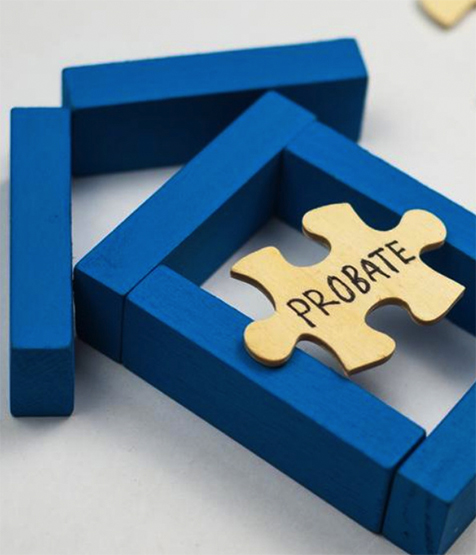
Probate & Trust Lawyer in Scottsdale, AZ
What is probate?
Probate is the legal procedure required to transfer assets from a deceased person’s name to his/her legal heirs or devisees. In Arizona, probate is required if a deceased person’s equity in real estate exceeds $100,000 in value or if his or her other assets combined exceed $75,000 in net value. This is true whether the deceased person has a will or not.
For estates that do not exceed $100,000 (for real property) or $75,000 (for personal property) a small estate affidavit may be used to transfer title to a deceased person’s assets rather than filing a probate case with the court.
For larger estates, an informal or formal probate proceeding through the court may be required. The first step is to determine if the deceased left a valid last will which named a personal representative to manage the estate. An application may then be filed with the court to open the probate.
Need help with a probate?
If you are named as the personal representative (executor) in a last will and need guidance on determining your responsibilities or how to perform your duties as the personal representative give us a call to set a consultation. We are here to help you!
In Arizona, the named personal representative must apply to the court to become appointed to acquire legal authority to act. Without an attorney this process may be burdensome and time-consuming. As the personal representative, you can be reimbursed for your legal expenses from the estate assets. It is also prudent to seek guidance from counsel to ensure that you are carrying out your legal duties as a fiduciary for the estate in a lawful manner. Our law firm can help you. We will prepare all needed court filings for your appointment as personal representative and help you comply with all court filing deadlines in the probate process.
Probate related services we offer:
- Notices to creditors
- Notices to heirs and devisees
- Uncontested probates
- Informal probates
- Representation of personal representative
- Affidavit for transfer of personal property
- Affidavit for transfer of real property
- Deed of distribution
- Release and waiver forms
TRUST ADMINISTRATION
If your loved one has passed away and you are named as trustee of their trust you have legal duties and responsibilities to the beneficiaries of the trust. A trustee, much like a personal representative, is a fiduciary and is responsible for prudently managing trust property, notifying beneficiaries of their rights, filing tax returns and distributing property in accordance with the terms of the trust document. This job is far from easy and it is a good idea to seek guidance from an experienced attorney. We are here to help. Please call to set a consultation.
Trust administration services include:
- Representation of Trustee
- Creation of subtrust for beneficiary
- Notice to beneficiaries
FREQUENTLY ASKED QUESTIONS
 Does a will avoid the probate process?
Does a will avoid the probate process?
A common misconception many have is that a last will avoids the probate process. The last will and testament is the legal document that only becomes effective if a probate is necessary. You should consult with an attorney to ensure that you understand how your will works and when it becomes legally effective.
 Why to avoid probate?
Why to avoid probate?
- Time-consuming. In Arizona, there is a requirement that a probate must remain open for a period of 4 month. Probate generally takes about six months to two years to complete; what many people fail to understand is that a probate can continue for much longer.
- Public. Probate proceedings are public and anyone can see any paperwork that is filed with the court, this includes your last will and any filings that seek to contest your will.
- Expensive. A simple probate will cost around $2,500-5,000; it’s not unusual for a probate to cost between 2-5% of the estate value.
Aside from the time and expense involved in probate, the best reason to avoid it is the inconvenience. Using the court system at any time for any reason is at best unpleasant for your family.
 How do you avoid probate?
How do you avoid probate?
In Arizona, you can avoid probate at your death by passing your assets using non-probate transfer methods, such as:
- Owning property through a revocable trust.
- Using beneficiary designations.
- Pay-on-death/Transfer-on-death designations.
- Owning property with right of survivorship.
A thorough estate plan typically utilized several of these methods and ensures that probate is avoided during a person’s lifetime as well as at their death.
 What is a Guardianship/Conservatorship?
What is a Guardianship/Conservatorship?
Probate may arise during a person’s life and not just after a person dies. If a person becomes incapacitated during their lifetime (e.g., Alzheimer’s, Dementia, coma) for family members to gain control of the person’s medical and/or financial decisions a guardianship or conservatorship may be filed with the probate court. Again, these probate matters can be very public, costly and unpleasant for all involved. By creating a complete and thorough estate plan with up-to-date powers-of-attorney and a revocable trust probate may be avoided altogether. Call to set a consultation with an attorney to begin the process.




